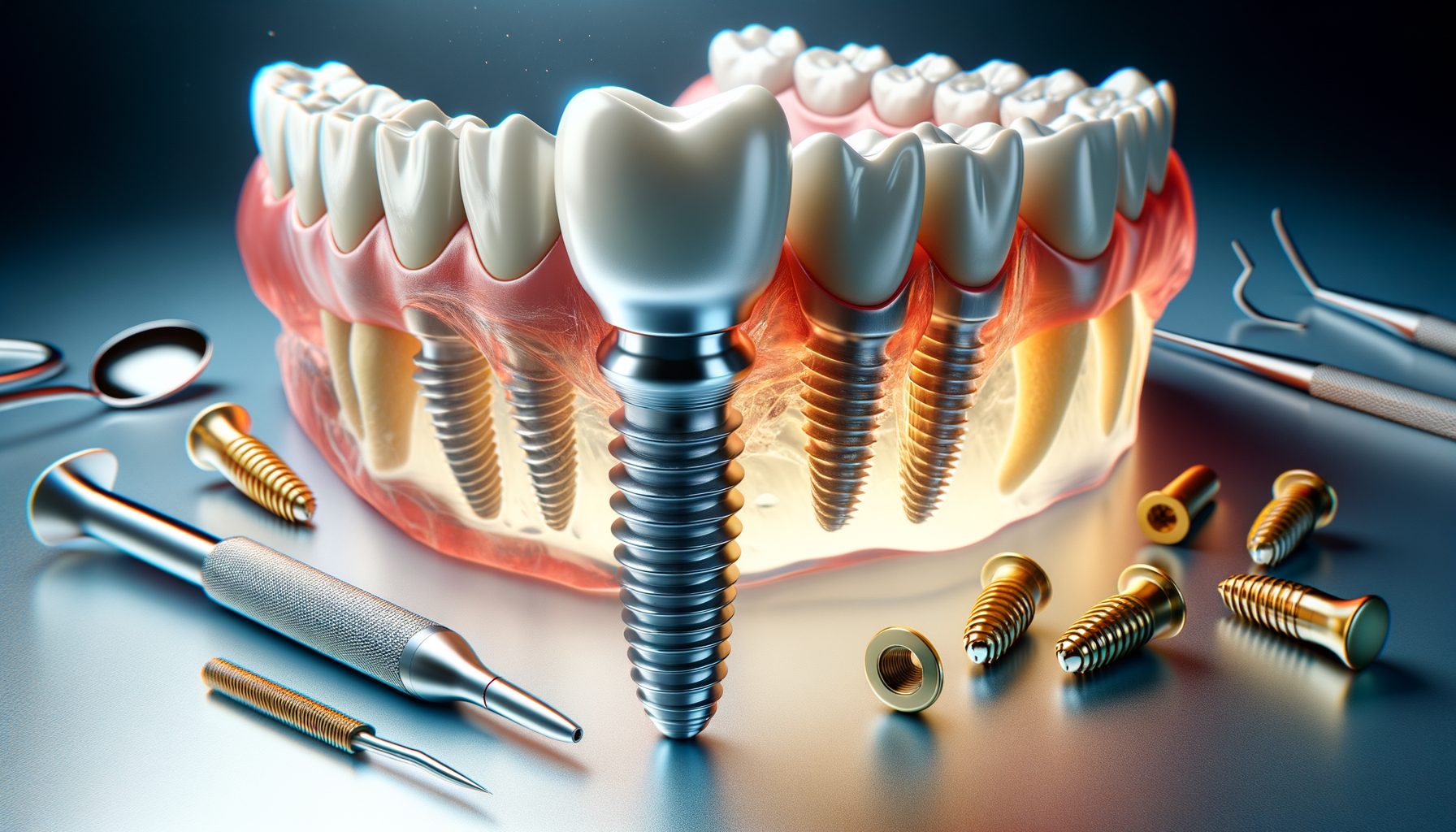Introduction to Dental Implants
Dental implants have revolutionized the way we approach the replacement of missing teeth. They offer a durable and aesthetically pleasing solution that mimics the look and function of natural teeth. Unlike traditional dentures or bridges, dental implants are designed to integrate with your jawbone, providing a stable foundation for artificial teeth. This integration not only ensures a secure fit but also helps in preserving the bone structure, which is often compromised when teeth are missing.
The importance of dental implants extends beyond mere aesthetics. They play a crucial role in maintaining oral health by preventing the shifting of adjacent teeth, which can lead to misalignment and further dental issues. Moreover, dental implants can significantly improve the quality of life for individuals who have lost teeth due to injury, decay, or other medical conditions. By understanding the benefits and process of dental implants, individuals can make informed decisions about their dental health and explore options that best suit their needs.
The Procedure of Getting Dental Implants
The process of receiving dental implants involves several stages, each crucial to ensure the success and longevity of the implants. Initially, a comprehensive dental examination is conducted to assess the health of the jawbone and determine the suitability for implants. This may include X-rays or 3D imaging to create a detailed map of the oral cavity.
Once deemed suitable, the next step involves the surgical placement of the implant into the jawbone. This procedure is typically performed under local anesthesia, ensuring minimal discomfort. The implant, usually made of titanium, acts as a root for the artificial tooth and requires a healing period known as osseointegration. During this time, the bone grows around the implant, securing it firmly in place.
After successful osseointegration, an abutment is attached to the implant, serving as a connector between the implant and the artificial tooth. Finally, a custom-made crown is placed on the abutment, completing the restoration. This multi-step process, although time-consuming, ensures a durable and natural-looking result that can last for many years with proper care.
Benefits of Dental Implants
Dental implants offer numerous advantages that make them a preferred choice for tooth replacement. One of the most significant benefits is their ability to mimic the function and appearance of natural teeth. This not only enhances the aesthetic appeal but also restores the ability to chew and speak effectively.
Furthermore, dental implants help in preserving the jawbone density, which often deteriorates following tooth loss. This preservation is vital as it prevents changes in facial structure that can lead to a sunken appearance. Additionally, implants do not require the alteration of adjacent teeth, unlike bridges, which helps maintain the integrity of surrounding natural teeth.
Another noteworthy benefit is the durability of dental implants. With proper care, they can last a lifetime, making them a cost-effective solution in the long run. They also eliminate the discomfort and inconvenience associated with removable dentures, offering a permanent solution that integrates seamlessly into everyday life.
Maintenance and Care for Dental Implants
Maintaining dental implants is essential to ensure their longevity and functionality. While they are designed to be durable, proper care is crucial to prevent complications such as infection or implant failure. Regular dental check-ups are important to monitor the health of the implants and surrounding tissues.
Daily oral hygiene practices, including brushing and flossing, are vital in keeping the implants and gums healthy. It’s recommended to use a soft-bristled toothbrush and non-abrasive toothpaste to avoid damaging the implant surface. Additionally, using an antibacterial mouthwash can help reduce the risk of infection.
It’s also important to avoid habits that can compromise the integrity of the implants, such as smoking or chewing hard objects. These activities can increase the risk of implant failure and should be minimized. By adhering to a comprehensive care routine, individuals can enjoy the benefits of their dental implants for many years.
Is Dental Implant the Right Choice for You?
Deciding whether dental implants are the right choice involves considering several factors, including oral health, lifestyle, and financial considerations. Dental implants are suitable for individuals who have healthy gums and sufficient bone density to support the implant. Those with chronic illnesses or conditions that affect healing may need to consult with their healthcare provider before proceeding.
Financially, dental implants can be a significant investment. However, their durability and the benefits they offer often justify the cost. Many dental practices offer payment plans or financing options to make the procedure more accessible.
Ultimately, the decision to opt for dental implants should be made in consultation with a qualified dental professional who can provide personalized advice based on a thorough assessment. By understanding the process and benefits, individuals can make informed choices that align with their dental health goals.




Leave a Reply